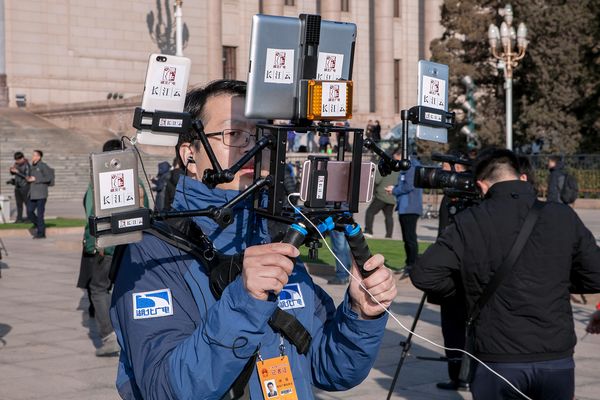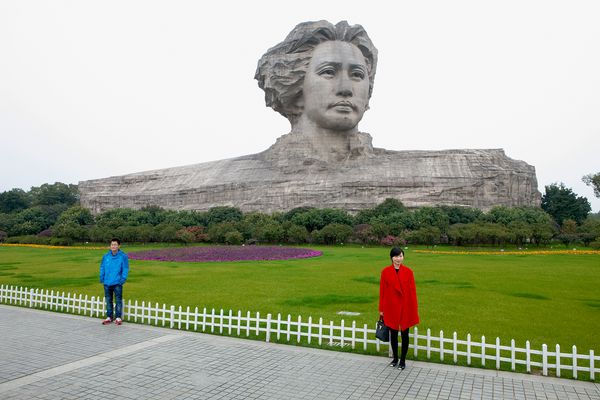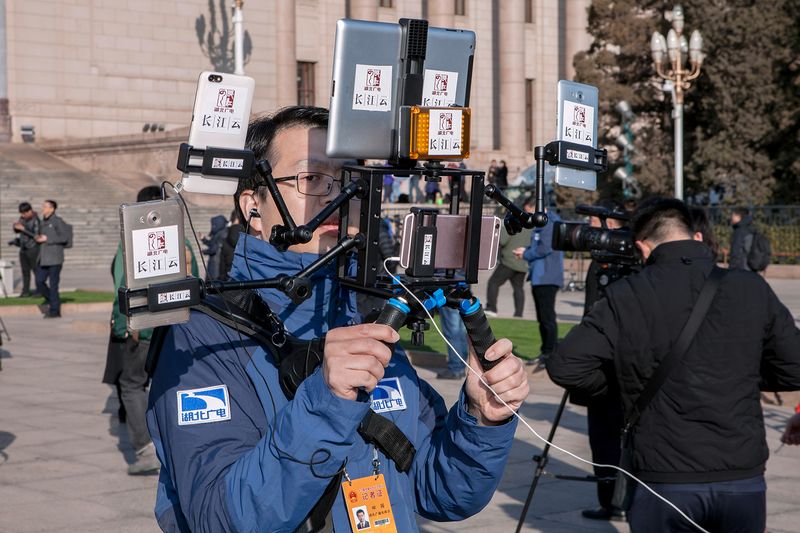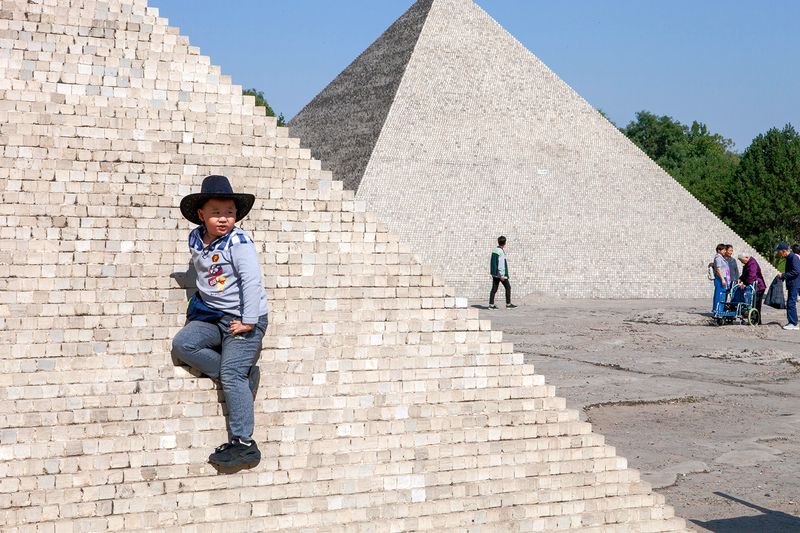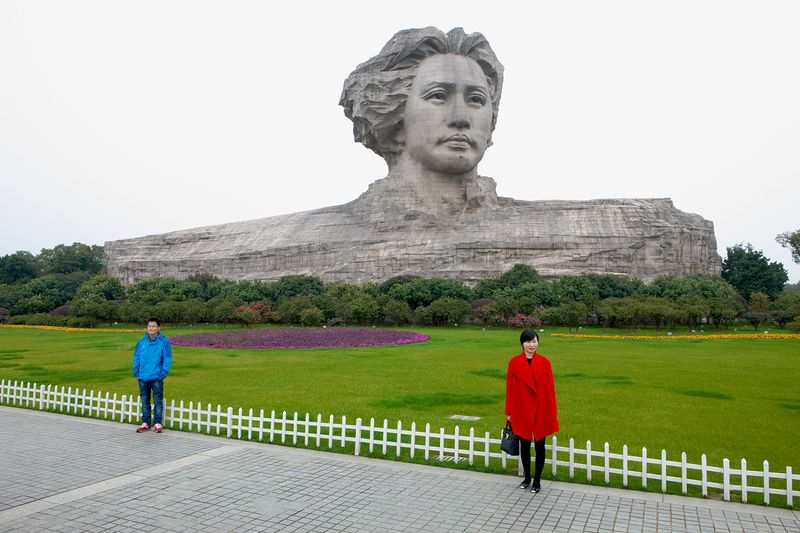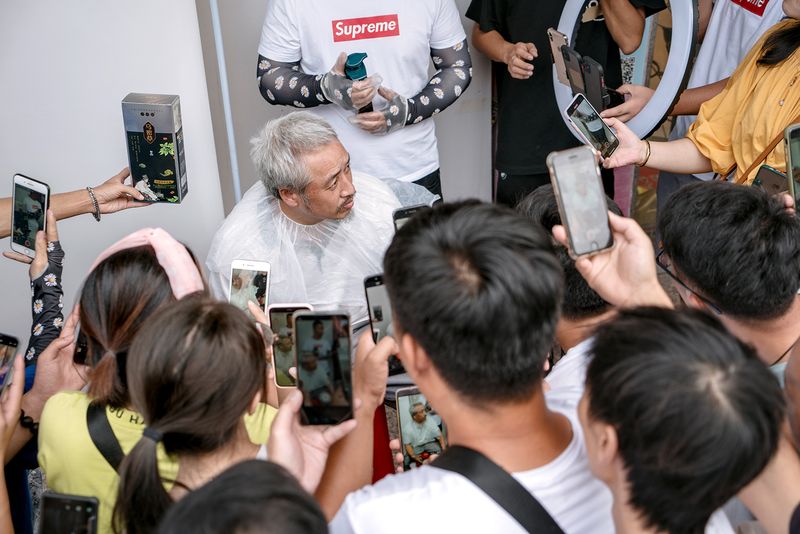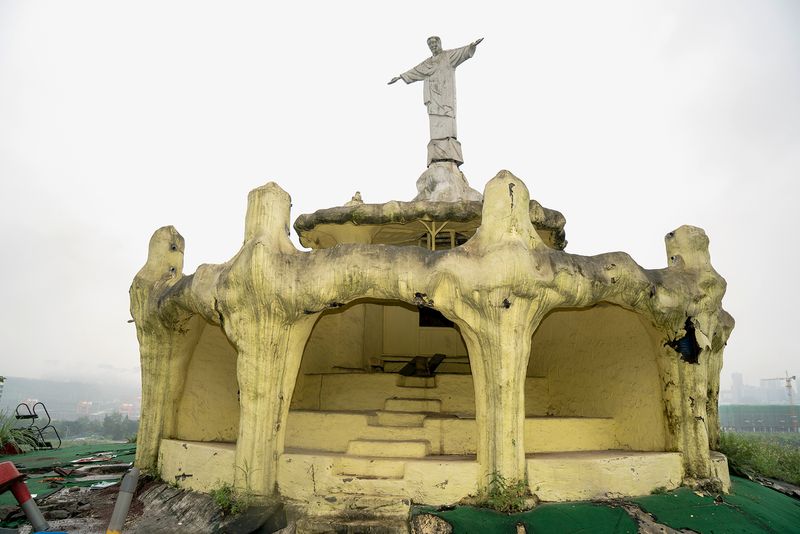Who Controls the Present Controls the Past
-
Published30 Sep 2021
-
Author
In Real Dreams, Ruben Lundgren details how information is made, controlled, and disseminated in a China that is a dream, fantasy, and nightmare all in one. Through images of trade, tourism, and manufactured media events, he gets behind the fourth wall of a world we all inhabit.
In Real Dreams, Ruben Lundgren details how information is made, controlled, and disseminated in a China that is a dream, fantasy, and nightmare all in one. Through images of trade, tourism, and manufactured media events, he gets behind the fourth wall of a world we all inhabit.
Real Dreams is an odd book. It’s meant to be. The cover is white, laid out like a tabloid newspaper, the spaces where the images should be blocked out in silver, the text on the right giving an overview of the project.
‘China is choked – to the Western mind – with the most ludicrous incongriguities, and until these have been met, assimilated and… put behind one, it it is next to impossible to arrive at any clear picture of a country full of beauty and interest for any intelligent observer, or at an approximately true appreciation of the many splendid qualities of a people whom the Western World still ventures to patronize.’
That is a text from a book written in 1909, and that is still the sentiment that Ruben Lundgren seeks to overcome. The images come from his work as a photographer for publications in his native Holland, and come from projects where the past and the present merge in ways that are strangely familiar.
The first spreads show construction – of tower blocks in Dalian vying with a giant propaganda speaker on the Taiwanese island of Jinmen. If you’re not familiar with the history, Taiwan is an independent country of 24 million people, but that’s not the way China sees it, and we might yet witness them go to war because of it.
So there we have it right from the start; construction boom and roaring economy coming up against the backwash of a turbulent 20th century. And that’s before we even mention economic crashes, environmental degradation, and a still widening gap between the extremely rich and the desperately poor.
With a very light touch, Lundgren navigates us through this topsy turvy world with images that are also have to do with how information is made, used, and framed. It’s a book of propaganda pictures of propaganda pictures then. Nowhere is that highlighted better in his images of a tea harvest. Unfortunately, when he arrived to take pictures of the tea harvest, the tea had already been picked. No matter, the tea pickers got dressed up in their best traditional costume and simply went and picked the tea again.
That sense of an altered reality continues in images that look back on the past. A rose-tinted nostalgia is everywhere (this is something the exiled Chinese writer Ma Jian writes about in his novel, China Dream), especially in the xiqing women who Lundgren and journalist Marije Vlaskamp (she writes the intro to the boo) tagged along with on their return to the rural backwaters where they had worked as teenagers during the Cultural Revolution.
‘We saw the physical scars of the hard physical labour that had been these women’s only education as they never went to a regular secondary school. We tried to find out how this shapes a person, when they constantly go back to the collective, the rosy memories, and choose to ignore the individual pain, depressions, and bullying. ‘This was normal behaviour. Nobody wants to listen to a whining zhiquing who just feels sorry for herself,’ the women said.’
There are images of information, how it is made, transmitted, and received. Smartphones, VR headsets, facial recognition, and a live-streaming street for influencers to promote their products are shown. Propaganda posters from Tibet, protests in Hong Kong, and the Resistance Park in Wuxiang touch on contested and reconfigured histories. How information is made and disseminated is paramount in who controls history. ‘Who controls the past controls the future: who controls the present controls the past,’ wrote George Orwell. That’s relevant in China, but it’s relevant everywhere. The real point of Real Dreams is not to wonder at the strange brutalities of how China handles its past and present. It’s to wonder at the strange brutalities with which we remember our pasts and presents, wherever we are.
---------------
All photos from the book Real Dreams by Ruben Lundgren
---------------
Real Dreams by Ruben Lundgren
Published in 2021. Text by Marije Vlaskamp // Design by -SYB-
Languages: English and Dutch
160 pages, including 24 fold-out pages // 24 x 30 cm
---------------
Ruben Lundgren is a Beijing-based photographer and curator who graduated from the University of the Arts Utrecht in 2005 and moved to China where he finished his masters degree photography at the Central Academy of Fine Arts. He made a name within the conceptual photography duo WassinkLundgren with publications as Empty Bottles (2007) and Tokyo Tokyo (2010). FOAM showed a retrospect of their work in 2013. He now works as a photojournalist for Dutch newspaper De Volkskrant and as an independent curator of Chinese photography. Follow him on Instagram.
Colin Pantall is a photographer, writer and lecturer based in Bath, England. His latest book, All Quiet on the Home Front, focuses on family, fatherhood and the landscape. Follow him on Twitter and Instagram.
